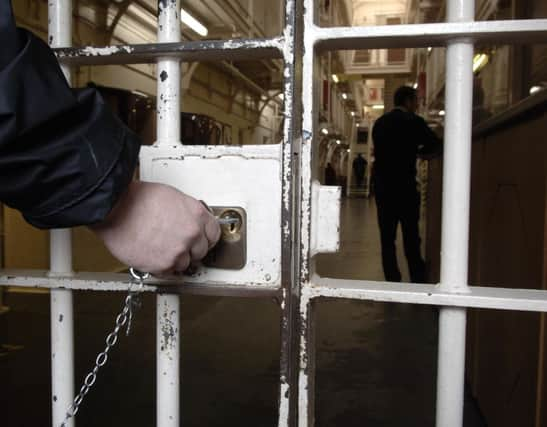Life skills needed to avoid reoffending


Young people who have made disastrous choices in life and are now living with the consequences of a custodial sentence have the highest reconviction rates amongst the prison population in Scotland. Yet they are also a group where targeted interventions can have a lasting impact, helping to reduce future reoffending.
As the charity for the well-being of young people in Scotland, particularly the most vulnerable in society, we also support under-25s in custody in four Scottish Prison Service establishments. For more than seven years, we have provided tailored services that take into account gender, ability, age and other relevant social factors, all aimed at reducing risk-taking behaviour and enhancing personal relationships.
Advertisement
Hide AdAdvertisement
Hide AdThis approach is known to aid desistance from offending and have a positive influence on a range of issues, including employability, education and training prospects for young people on release. We see first hand the life-changing skills these youngsters gain but we need to do even more.
Our project draws on years of experience supporting vulnerable young people during their challenging transitional years from adolescence to adult life. Within the prison environment, we work mainly with those serving shorter sentences, many from chaotic backgrounds, to help give them a future free from negative behaviours that often lead to reoffending.
Each prisoner is offered intensive one-to-one support using a range of resources specifically tailored to their individual needs. Our prison team develop relationships with the young people and focus on a range of issues, including negotiation and assertiveness skills. A priority is to help them maintain and develop positive, healthy relationships with partners and families, which often acts as a motivating force.
When it comes to identifying and reducing risk-taking, we look at influencing factors such as domestic abuse, self esteem, body image, anger management and controlling negative feelings. Emotional and sexual well-being, pregnancy and parenting skills are also covered.
With their emotional resilience and confidence improved, they become better equipped to make the transition from custody to community and rise to the challenges they will face on liberation. Not only are they more capable of accessing support services when their sentence is ended, crucially, the better communication, relationship and problem-solving skills they gain will also help them cope better in learning environments and enhance their employability.
Through the development of life’s transformational skills and an increased understanding of self, these young people become more empowered to pursue healthy relationships. With increased confidence, they feel enabled to work through their transition to liberation and better able to pursue a more constructive future for not just themselves, but also their families and, indirectly, their communities.
The level of stability they achieve helps them become more independent and capable, with an increased belief in their own ability to live in the community. On liberation, everyone receives individualised information pertinent to their local circumstances, including links with community services offering ongoing support.
While the approach we take at Caledonia Youth is quite unique in Scottish prisons, we are grateful to contribute to the range of rehabilitation programmes that operate within the SPS. It is highly valued by SPS staff and has been positively received by young offenders. But resources are tight.
Advertisement
Hide AdAdvertisement
Hide AdOver the past seven years, we have worked hard to develop the programme and seek the independent funding that has sustained it. Thanks go to all the trust funds which have supported a service that really does make a difference.
These efforts continue apace, as not only are there waiting lists for our programme – we currently work in HMP&YOI Cornton Vale, HMYOI Polmont, HMP Greenock and HMP Edinburgh – but other SPS establishments across Scotland have also registered their interest in our support.
So we are seeking opportunities to maintain and, if at all possible, expand what is viewed as a ground-breaking programme. We want to continue supporting some of Scotland’s most vulnerable and challenging young people, helping them minimise the risks they take and make more positive choices in their lives ahead.
• Hawys Kilday is chief executive of Caledonia Youth